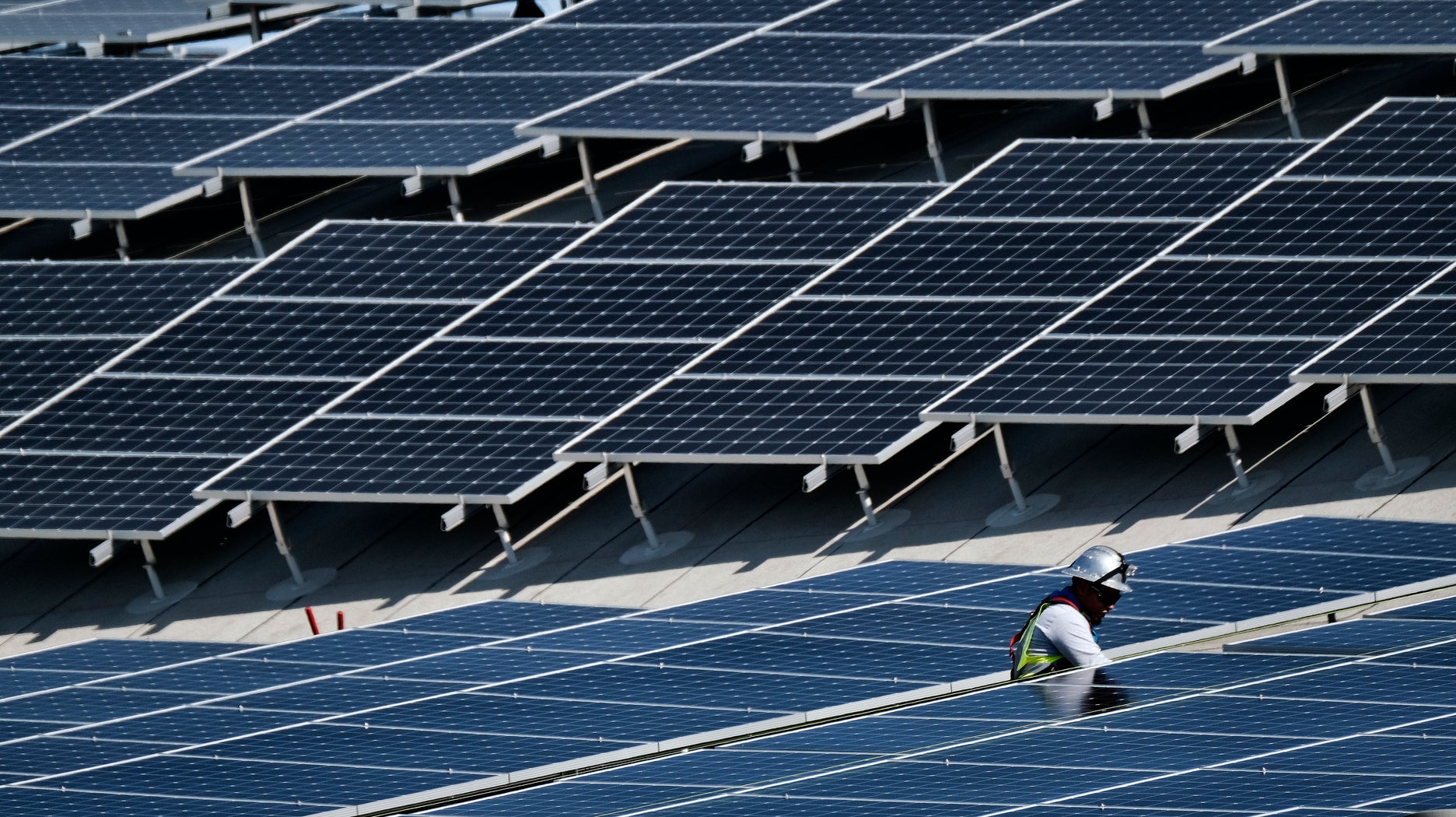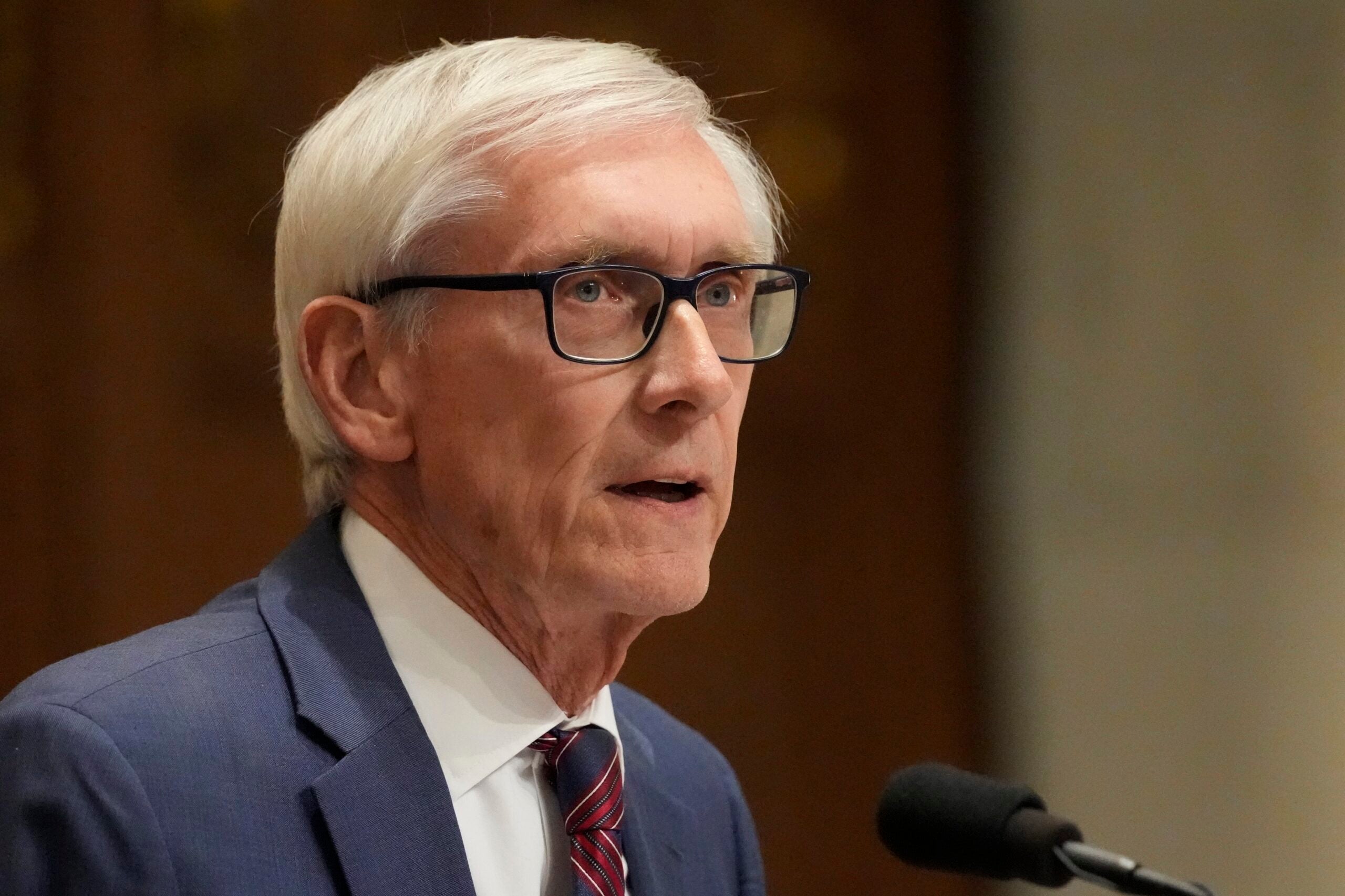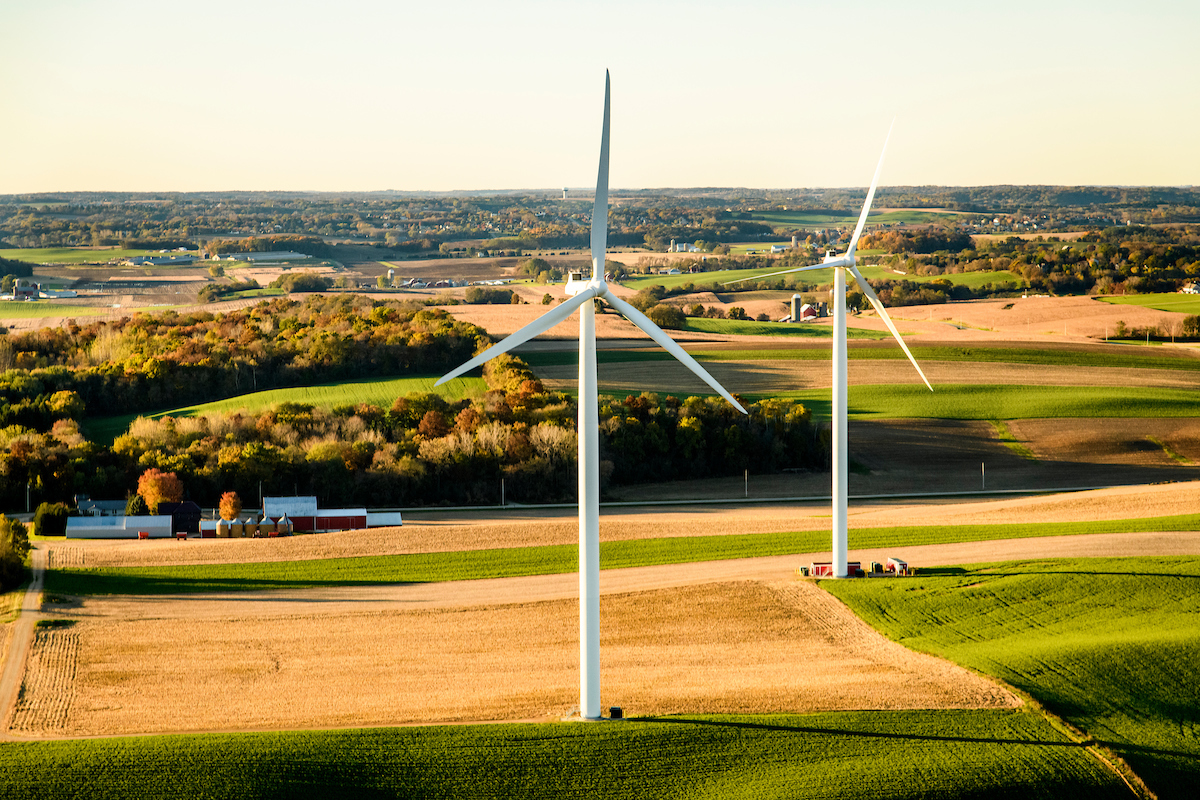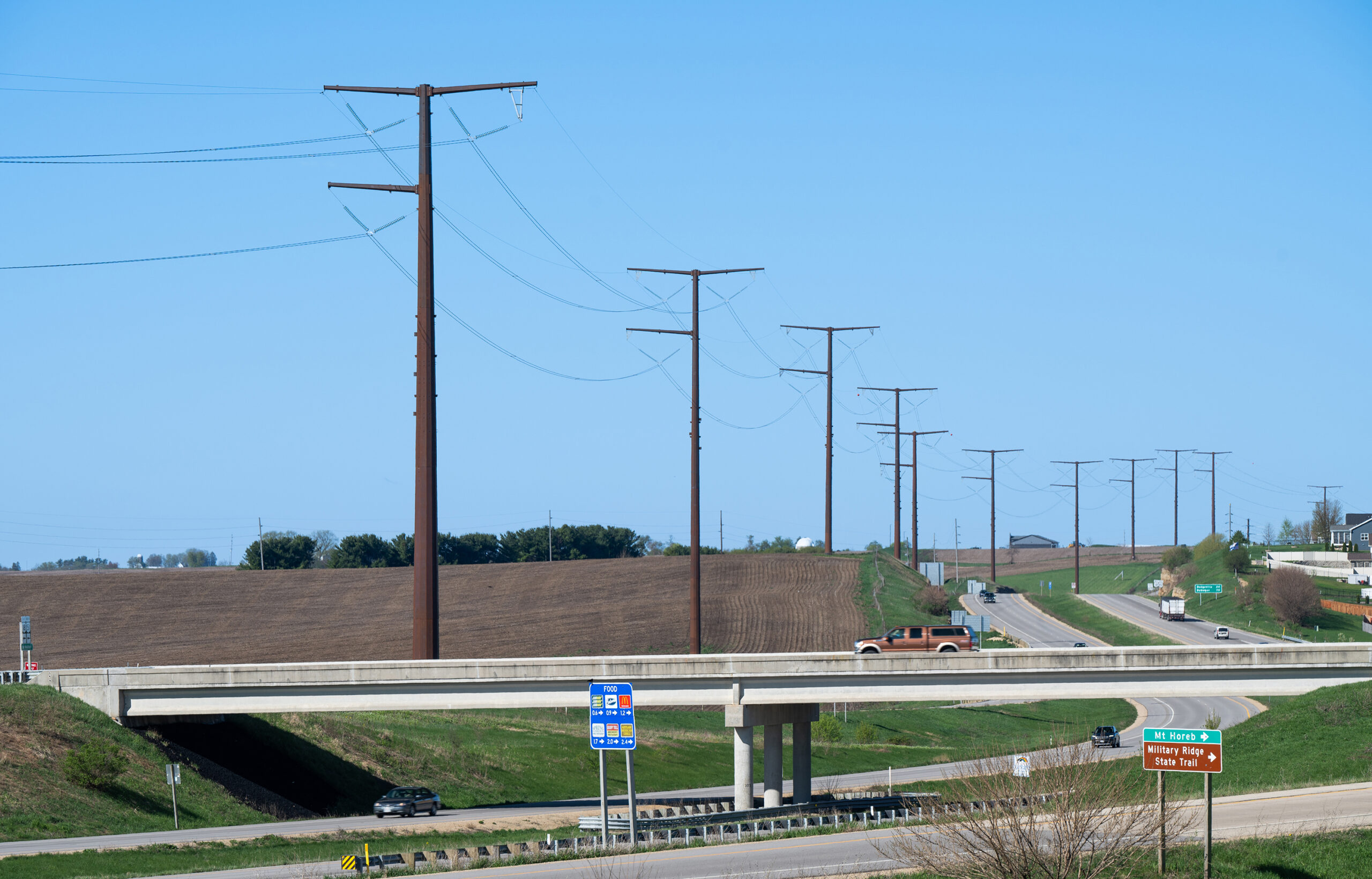Wisconsin advocates say historic investments in clean energy passed by the U.S. Senate could be the catalyst the state needs to move more quickly on clean energy goals.
The U.S. Senate passed the Inflation Reduction Act Sunday, moving along the largest federal clean energy investment in U.S. history. The $370 billion dollars in funding will go toward renewable energy infrastructure programs and tax credits for electric vehicles among other climate policies. Senate Democrats have said the legislation will help the country cut greenhouse gas emissions by 40 percent from 2005 levels by 2030.
The Inflation Reduction Act also includes measures to reduce costs for Medicare recipients and several tax changes that are expected to bring in around $300 billion in new revenue.
News with a little more humanity
WPR’s “Wisconsin Today” newsletter keeps you connected to the state you love without feeling overwhelmed. No paywall. No agenda. No corporate filter.
Democratic U.S. Sen. Tammy Baldwin applauded the legislation Sunday, saying working families in Wisconsin “need lower costs.”
“Our legislation will lower energy costs for consumers, and will make investments to boost the production of Made in America clean energy that will create jobs and take on the climate crisis,” Baldwin said in a press release.
U.S. Sen. Ron Johnson joined all of his Republican colleagues in voting against the legislation and said the spending package will make inflation worse.
“This is a Green Energy Fantasy that will more likely drive the cost of energy up rather than down,” Johnson said in a press release.
Chelsea Chandler, climate, energy and air program director for Clean Wisconsin, said the historic investment is an opportunity for Wisconsin to take action on the clean energy plan released by Gov. Tony Evers’ administration earlier this year.
“We have the vision, certainly, and now we just need help moving it along,” Chandler said Monday. “Ultimately, we need more supportive legislation at the state level. We need to use our state budget to prioritize these goals. And you know, those are sometimes heavier lifts and so it’s really great that we have different levels of government that are working towards this clean energy transition.”
Chandler said tax credits created for energy storage, new wind and solar infrastructure and electric vehicles will help these technologies be adopted more quickly in Wisconsin. She also applauded investments to help homes and buildings transition away from gas-powered furnaces to electric heat pumps.
Chandler said Johnson’s comments about the impact on consumer energy costs presents what she called a “false choice.” She said opponents of clean energy adoption have long argued that the cost of transitioning from traditional energy sources is too high. But Chandler said Wisconsinites are already facing the growing costs of climate change.
“We are already experiencing extreme weather events, flooding, damage to infrastructure, tons of health impacts related to extreme heat,” she said. “If we don’t make these investments now, we’re gonna be stuck with a really huge bill later, and all of those devastating consequences.”
Chandler said the legislation also sets aside funding for “climate-smart” agriculture projects, like sequestering carbon into soils and reducing methane emissions on livestock farms.
Michael Vickerman, policy director for RENEW Wisconsin, said one of the most important aspects of the legislation is the commitment to a policy for 10 years. He said previous clean energy incentives have been much shorter lived, which created what he describes as a “roller coaster dynamic” for the industry.
“Every market actor desires stability and predictability, which had always been elusive in the clean energy world because of the short term nature of tax credit extensions,” Vickerman said. “Predictability and stability are absolutely vital to encouraging private investment in the manufacturing of equipment and the development of logistical networks to transport the equipment from one part of the country to another and to build up a skilled labor force.”
Vickerman said the other highlight of the legislation is the promotion of American manufacturing of clean energy infrastructure. He said the amount of some tax credits are tied to how many components of a project are American made. And Vickerman said Wisconsin is well positioned to be a part of a swell in domestic manufacturing, from transportation companies in trucking and at Great Lakes ports to companies already making parts for the clean energy industry.
“We have a wind turbine tower manufacturer, for example, that could scale up. We have companies that specialize in electronic controls for batteries and inverters,” Vickerman said. “They may not make the panels themselves, for example, or the turbine blades, but they make a lot of other components that go into clean electricity generation. So I think Wisconsin will reap its fair share of the national investment in clean energy manufacturing.”
The House is expected to take up the bill next, possibly as soon as the end of this week. Even if they move quickly to pass the legislation, Vickerman said it will take a while before the funding trickles down to the state level. But he agrees with Chandler that the package sends a strong signal to state and local government officials that the transition to clean energy will need to be a part of conversations on infrastructure and economic development moving forward.
Wisconsin Public Radio, © Copyright 2026, Board of Regents of the University of Wisconsin System and Wisconsin Educational Communications Board.




